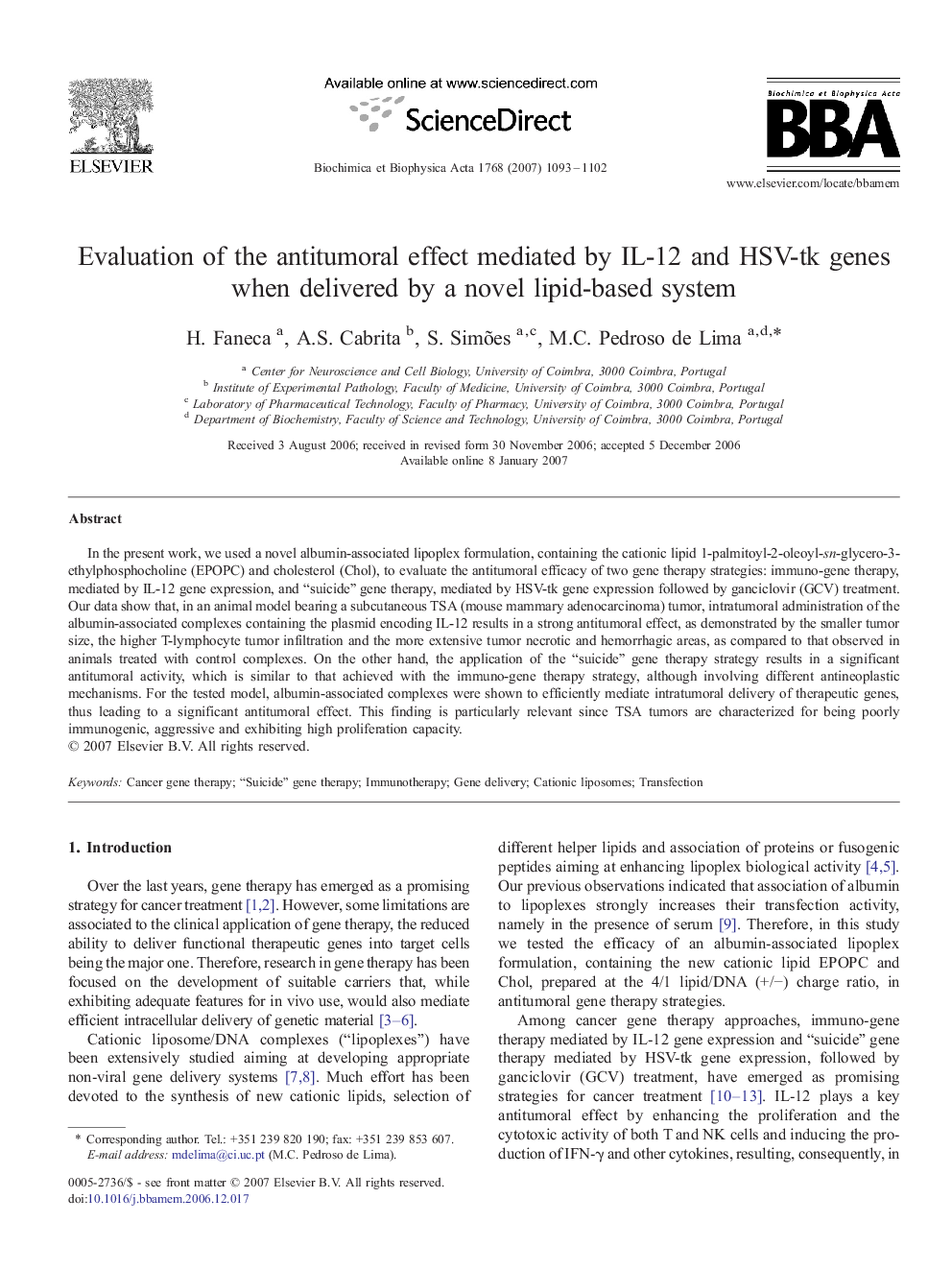| Article ID | Journal | Published Year | Pages | File Type |
|---|---|---|---|---|
| 1945699 | Biochimica et Biophysica Acta (BBA) - Biomembranes | 2007 | 10 Pages |
In the present work, we used a novel albumin-associated lipoplex formulation, containing the cationic lipid 1-palmitoyl-2-oleoyl-sn-glycero-3-ethylphosphocholine (EPOPC) and cholesterol (Chol), to evaluate the antitumoral efficacy of two gene therapy strategies: immuno-gene therapy, mediated by IL-12 gene expression, and “suicide” gene therapy, mediated by HSV-tk gene expression followed by ganciclovir (GCV) treatment. Our data show that, in an animal model bearing a subcutaneous TSA (mouse mammary adenocarcinoma) tumor, intratumoral administration of the albumin-associated complexes containing the plasmid encoding IL-12 results in a strong antitumoral effect, as demonstrated by the smaller tumor size, the higher T-lymphocyte tumor infiltration and the more extensive tumor necrotic and hemorrhagic areas, as compared to that observed in animals treated with control complexes. On the other hand, the application of the “suicide” gene therapy strategy results in a significant antitumoral activity, which is similar to that achieved with the immuno-gene therapy strategy, although involving different antineoplastic mechanisms. For the tested model, albumin-associated complexes were shown to efficiently mediate intratumoral delivery of therapeutic genes, thus leading to a significant antitumoral effect. This finding is particularly relevant since TSA tumors are characterized for being poorly immunogenic, aggressive and exhibiting high proliferation capacity.
